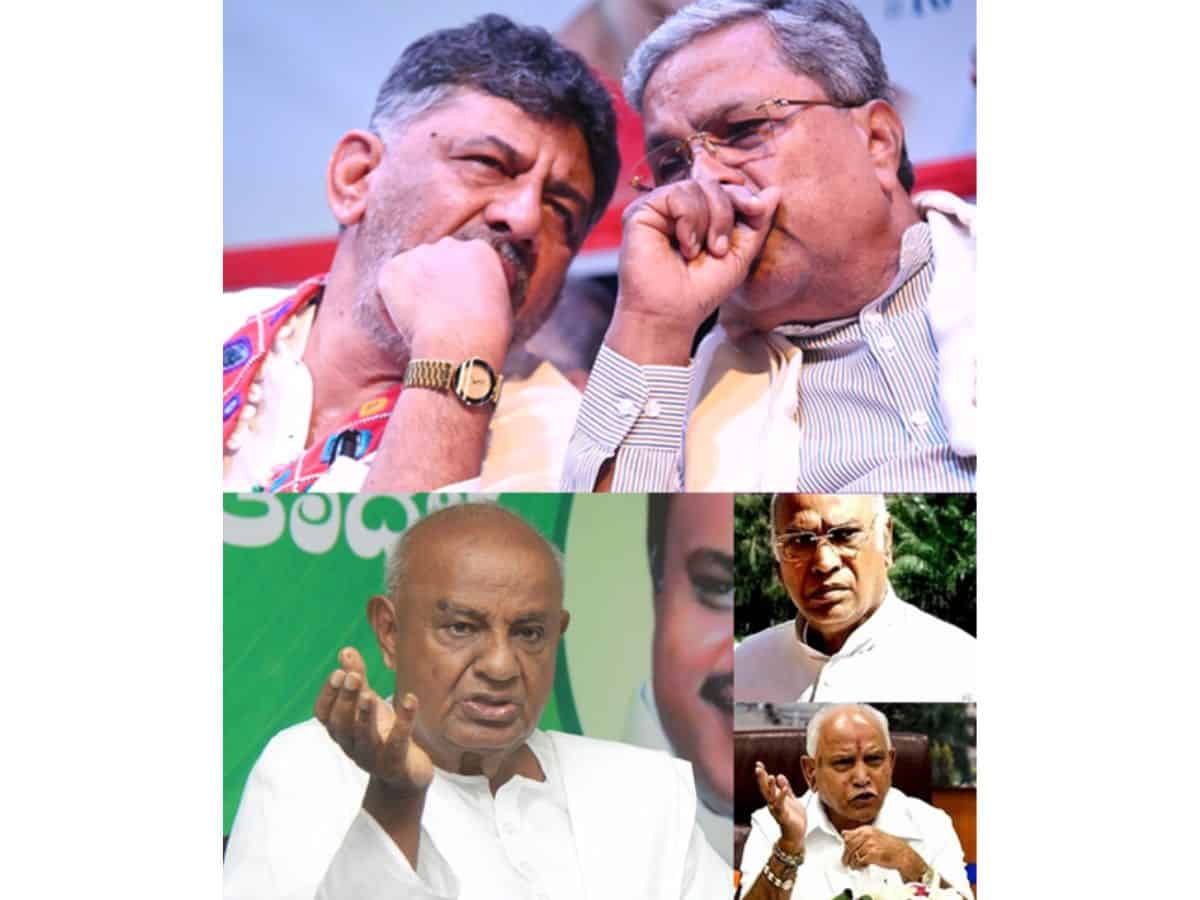
Bengaluru: Following the Bihar government making its caste census report public, Karnataka’s Congress government is under pressure to accept the state’s caste census report pending for years. However, the government led by Chief Minister Siddaramaiah is treading cautiously over the issue as it threatens to lead to a controversy in the state.
According to reliable sources, Lingayats and Vokkaligas, the two influential caste groups are shortly holding a meeting to discuss the caste census issue. Their leaders may take a decision to pressure the Congress government not to accept the report.
In Karnataka, though regarded as one of the most progressive states in the country, the politics is caste-driven. The leaked report has stirred a hornet’s nest in the state as the report claimed that as per the findings, Muslims form the largest group after the Scheduled Castes.
The influential Congress leaders from the Vokkaliga and Lingayat communities pressurized Chief Minister Siddaramaiah not to accept the report. As per the report, the Lingayats now considered to be the largest caste with 17 per cent of the population, were shown in third place. The Vokkaligas who are at second place with 14 per cent population are shown at the fourth place.
The Congress, BJP and the JD (S) are issuing diplomatic statements on the issue as any stand would antagonize either the upper castes or the oppressed classes and the minorities.
Political analyst Channabasappa Rudrappa told IANS that it is a tricky situation for the Congress government. Though, at the national level the Congress has supported the caste census, in Karnataka there is the need to take everyone along.
“The Vokkaligas and Lingayats are claiming that the survey was not done scientifically. The Lingayats are questioning that the Chinnappa Reddy Commission which conducted a caste census showed the Lingayats at 17 per cent and the present survey shows them at 14 per cent. Questions are being raised on how this could be possible?” he stated.
Rudrappa said that in Karnataka the tickets to contest elections are allotted as per the caste calculations. In other states, there is bi-polar politics of the upper castes oppressed classes, and minorities. But, in Karnataka, there is tri-polar politics. It is Lingayat versus Vokkaliga versus backward classes and minorities.
The alliance of the JD (S) and the BJP indicates the coming together of the Vokkaligas and the Lingayats. The Lingayat community has largely identified with the BJP while the Vokkaligas are with the JD (S). Amid this, Chief Minister Siddaramaiah has emerged as the unquestioned leader of the oppressed classes and got a larger than life image among the poor. It is an uneasy situation in the state and the report is most likely to be kept in abeyance till the Lok Sabha results are announced, he said.
“Any movement with the caste census will upset the apple cart now,” he underlined.
Journalist and author Mohammad Haneef, told IANS that the caste census conducted in the state is a socio-economic survey. Reservation is provided on the basis of caste. It is to be ascertained about their population, economic, and social conditions, whether they are employed in the government or the private sector, or whether they are daily wage labourers.
What is the scientific base for providing reservations? The caste census was done in 1952 and later the caste census was dropped. The Kantharaju Commission had worked for two years by using 1.25 lakh government employees to conduct a caste census in Karnataka. Rs 167 crores are spent on it. Just because upper castes are opposing this, the report can’t be kept in abeyance, Haneef said.
The report is about administration and it should not be politicised. Reservation should be provided scientifically and the caste census report helps in it, he added.
Karunakar Kasale, the state media coordinator of the BJP told IANS that, “we welcome the caste census report of the Kantharaju Commission. The order to conduct the survey was given by then-CM Siddaramaiah. Later, the coalition government and the BJP governments did not accept it. Let the details of the report come out and then a discussion could be held.”
Former CM Basavaraj Bommai had stated that his party was not against the caste census. Chief Minister Siddaramaiah admitted several times that the survey that he got done during his tenure (2013-2018) was a socio-economic survey and not the caste census. There was a lot of difference between the caste system in North India and South India, he added.
Chief Minister Siddaramaiah stated that the Backward Classes Commission has been asked to submit the caste census report to the state government. “Once the report is submitted, it will be verified,” he said.
The socio-economic survey popularly known as the caste census was conducted in 2015 by the Karnataka State Backward Classes Commission (KSBCC) headed by H. Kantharaj. Sources said that the report claims that SC and ST groups form the majority in the state, followed by Muslims. The Lingayats considered to be the highest population group were shown as the third largest group and Vokkaligas who were in second position got the fourth position.
The facts created a stir in the state and triggered a huge controversy as the Muslim community was shown as having the second-highest population. Successive Chief Ministers including B.S. Yediyurappa, H.D. Kumaraswamy and Basavaraj Bommai did not even bother to look into the report, not even the present Chief Minister during his previous term.
